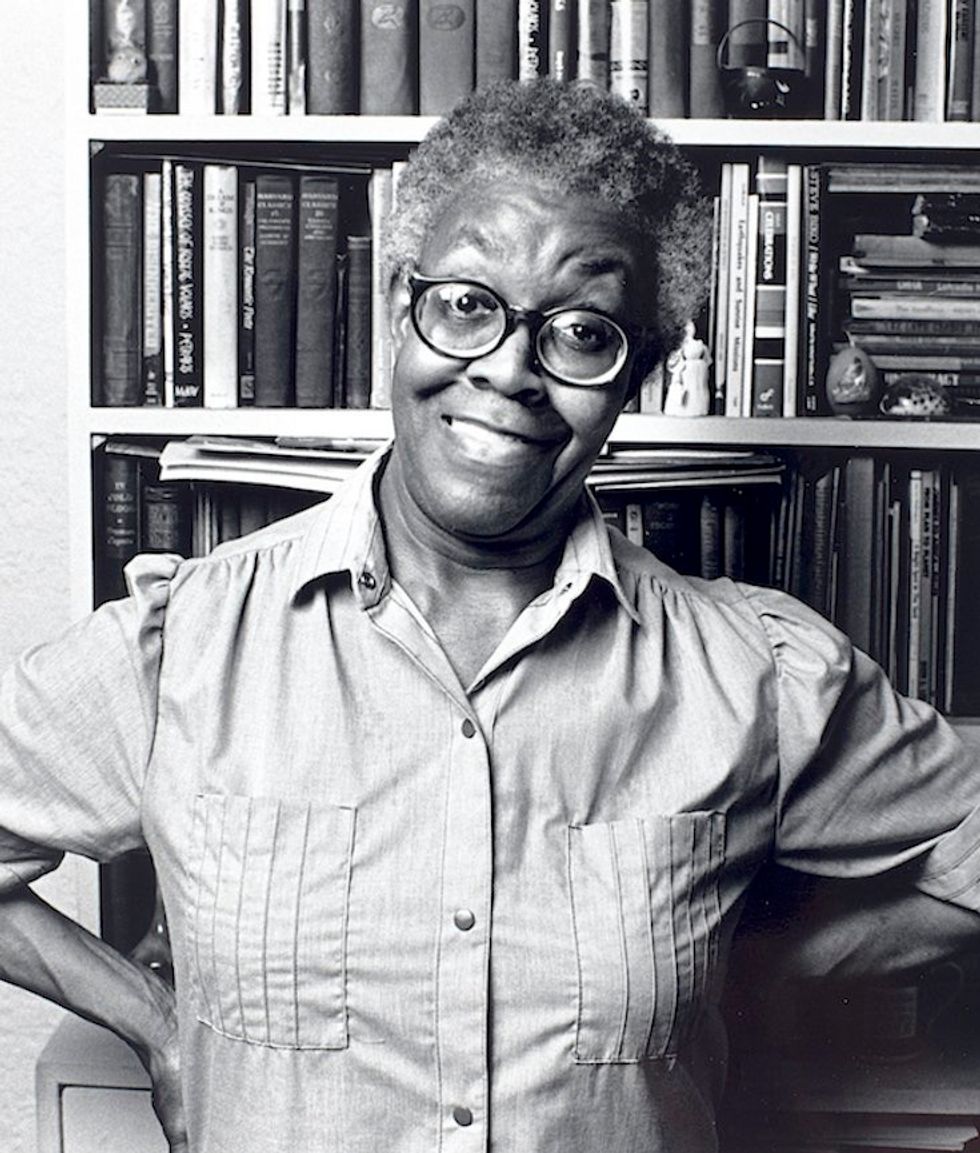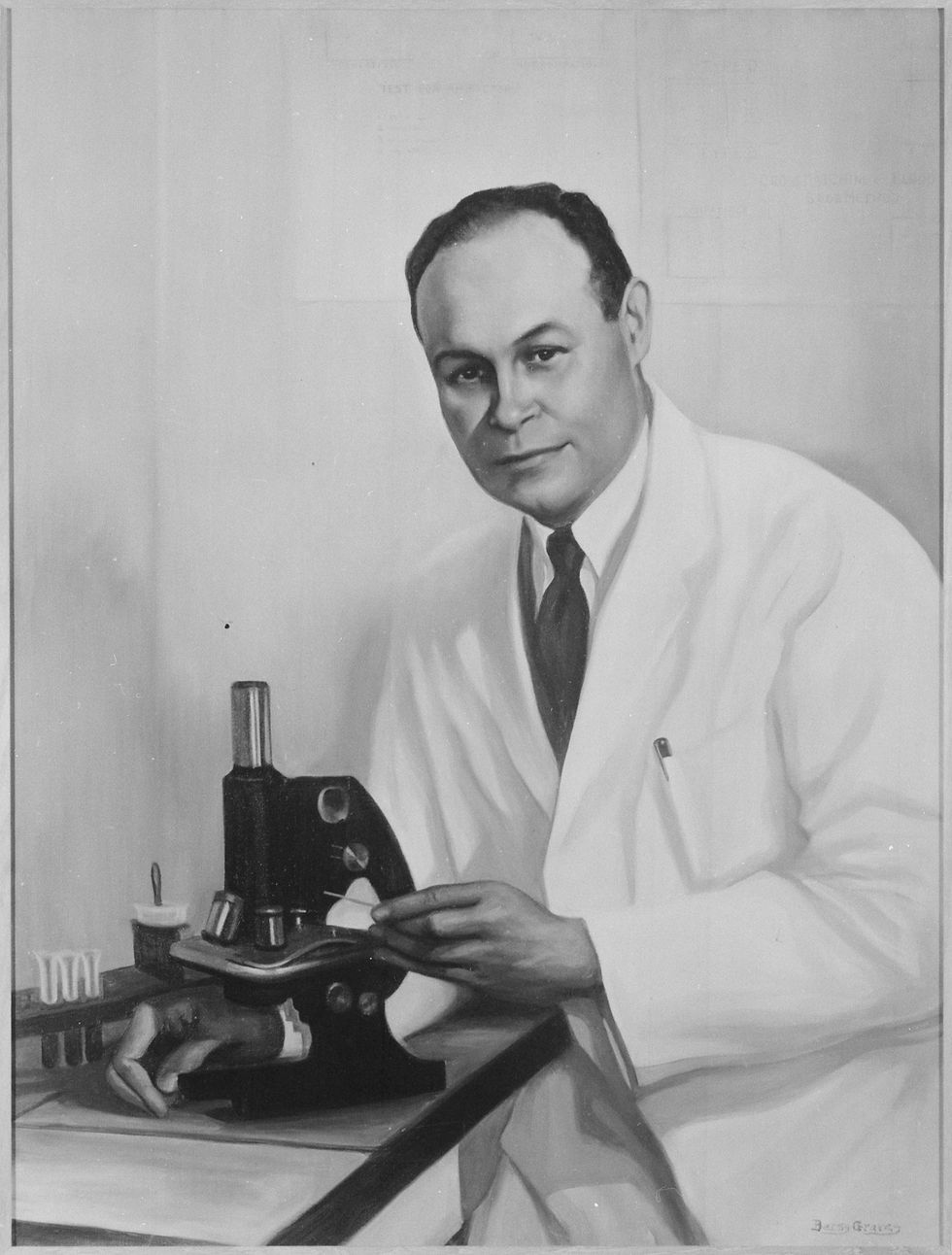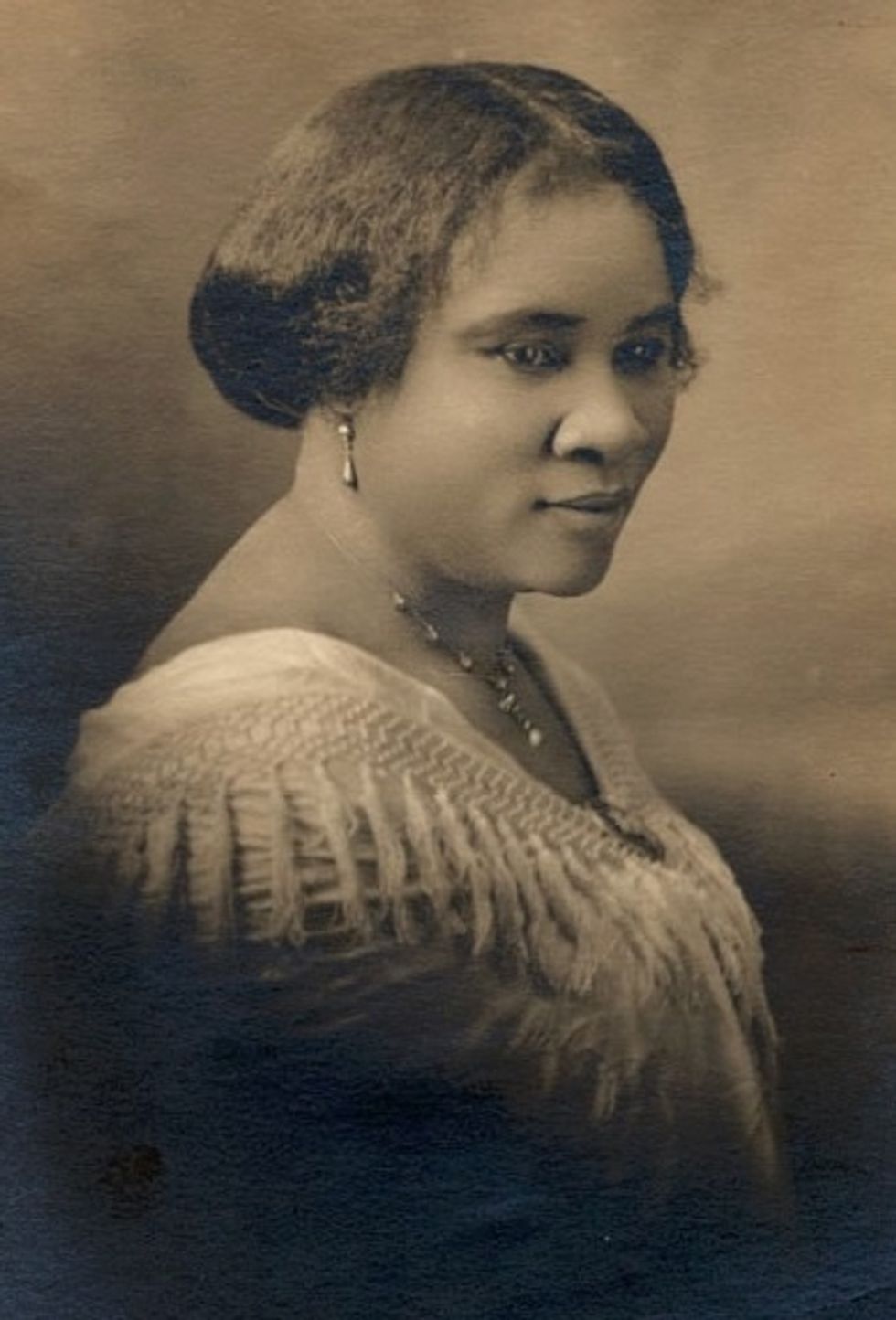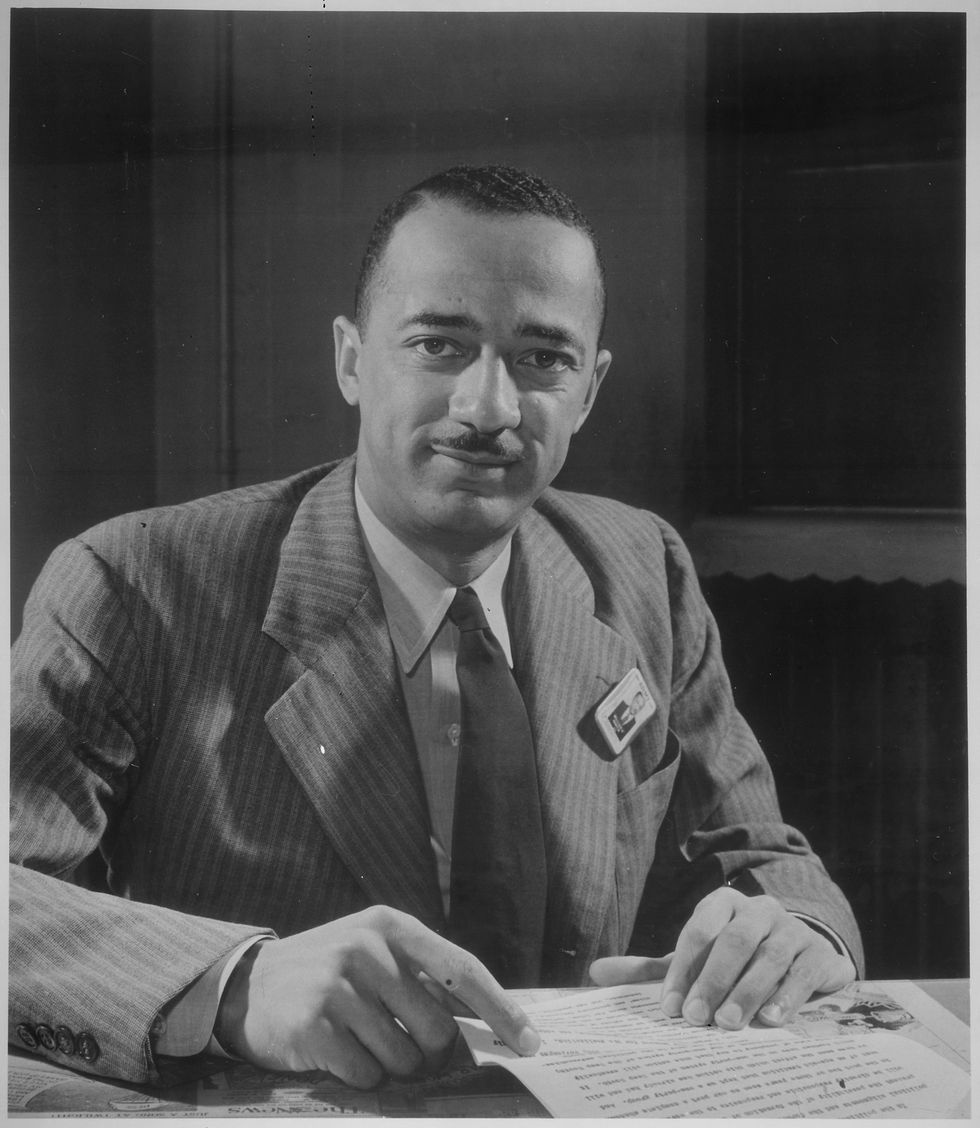The American education system fails to teach us proper black history, and hardly acknowledges the part that black people played in the growth and development of this country. Growing up, I never realized how all my history classes were shown through a Eurocentric lens. Our knowledge of black history from school only consists of slavery and the Civil Rights era. Of course, these are important moments and vital to learn about, but there is much more richness in black history and contributions made that we never learn about. Black history is not just a footnote of American history, it is a big part of it. I have been taking this time to educate myself and I hope you do too. Here are 6 people who made important contributions to society. Know their names and stories and please research the countless others who aren't on this list.
1. Fannie Lou Hamer

Fannie Lou Hamer
Fannie Lou Hamer was a voting and women's rights activists, as well as a leader in the Civil Rights movement. She co-founded the Mississippi Freedom Democratic Party and the National Women's Political Caucus. She organized Freedom Summer in 1964, which helped register African Americans to vote in the segregated South. Another one of her missions was to make land more accessible for African Americans, and she started by creating a "pig bank", where pigs were given to black farmers to use for food and financial gain. The success of this initiative led to her creation of the Freedom Farm Cooperative, which provided land for black Americans to collectively farm, and led to include a housing agency, financial counseling, and more. Hamer faced many attacks, assaults, and threats by white supremacists when she first tried to register to vote and several other instances due to her activism, but she continued to work and fight for the rights of African Americans and women. Her work is truly inspiring.
2. Gwendolyn Brooks

Gwendolyn Brooks
Gwendolyn Brooks was an influential poet of the 20th century. Her poems mostly dealt with the daily life of urban African Americans. Her first poem, "Eventide" was published when she was just 13 years old. In 1945, she released her first book of poetry, "A Street In Bronzeville", which received critical acclaim. Her second book of poetry, "Annie Allen", went on to win the Pulitzer Prize for Poetry in 1950, making her the first African American to receive a Pulitzer Prize. Brooks received many honors throughout her life, such as being appointed a poetry consultant to the Library of Congress, the first Black woman to ever be appointed. She received honorary degrees from several colleges and even started teaching writing at several schools, starting at the University of Chicago. Her work shows a political consciousness and awareness of social issues faced by black people and showed her strong commitment to her community.
3. Dr. Charles Drew

Charles R. Drew
Charles R. Drew was a doctor and medical researcher, who developed the first large scale blood banks. During World War 2, he directed the Blood for Britain project, which involved collecting and testing blood plasma to send to the UK to help British soldiers and citizens. This led to his invention of bloodmobiles, refrigerated trucks to store blood, which helped extremely in safely transporting blood and are still an invention widely used today. He was later appointed director of the first American Red Cross bank, where he developed a blood bank to be used for the U.S. military. He soon resigned from this post due to the fact that the U.S. military wanted to segregate blood donated by African Americans. He would not stand for this racist policy. He then worked as a surgeon and professor at Howard University. His research into blood preservation techniques and the creation of the blood bank is an amazing contribution and has saved many lives.
4. Madam C.J. Walker

Madam C.J. Walker
Madam C. J. Walker was the first self made black woman millionaire in America, by her development of hair care products for black women. After she had a scalp ailments that led to hair loss, she began working for hair care entrepreneur Annie Malone, which inspired Walker to develop her own product line of hair care treatments. The business began to grow, thanks to Walker's hair care method known as the "Walker system". As an advocate for black women's economic independence, she trained and employed many saleswomen to sell the products, calling them "beauty culturalists". Her activism is also important to note, for instance her donation of $5,000 to the NAACP's anti lynching fund (the largest donation they had ever received at the time), and her contribution of scholarship funds for students at the Tuskeegee Institute. Her philanthropic efforts were unmatched, as she donated and raised funds for the YMCA, NAACP, and many other black charities. Her will even gave 2/3 of her future net profits to charity. Walker was a strong, independent woman who did everything she could to support these movements and causes and is a name to remember.
5. William H. Hastie

William H. Hastie
William H. Hastie was a practicing lawyer, judge, teacher, and civil rights advocate. He was one of the first African Americans hired by the Roosevelt administration, and due to his impressive work, Roosevelt appointed Hastie to the federal court in the Virgin Islands, making him the first federal black judge in American history. Later on, Hastie became governor of the Virgin Islands, and was the first black person to ever hold the position. President Harry S. Truman later nominated Hastie to the federal court of appeals. There was hesitance and backlash over this decision, but after six months Hastie was finally confirmed and became the first black federal appellate judge. Hastie used his new platform to combat decisions that upheld segregation and racism. His career was inspiring and even after retirement, he became an advocate and activist for black causes.
6. Alvin Ailey

Alvin Ailey
Alvin Ailey was a dancer, choreographer, and activist who founded the Alvin Ailey American Dance Theater. Ailey's choreography expressed the African American journey and experience and explored several issues faced by the black community. He founded the Alvin Ailey American Dance Theater as a way to honor black culture through dance. Two years after its' founding, Ailey premiered his signature and most acclaimed work, "Revelations", a 3 part dance masterpiece set to spirituals, gospel, and blues music about the African American historical experience from slavery to freedom from a church perspective. His dance theater provided many performance opportunities for black dancers, who frequently had to deal with racism and rejections from people in the industry. His choreography was vibrant and full of hope and gave a glimpse into black life in America through an interesting medium. He faced his own struggles as a black, gay man but used his passion for dance as a way to uplift black dancers and encourage them to succeed by celebrating black culture with his influential dance company.
Black history in America is a part of all aspects and covers every field ranging from politics, art, entertainment, and more. There have been so many contributions to society that are overlooked due to the whitewashing of our history classes. Black history should be a larger part of school curriculum all over the country. White people were not the center of American history and it's important to acknowledge that. I wish I had learned about more black history growing up in a public school, but as I try to be a better ally, I will use this time to educate myself about black history and the struggles faced by black people in our world today. There are only 6 people on this list, but there are many more with stories we should hear.














